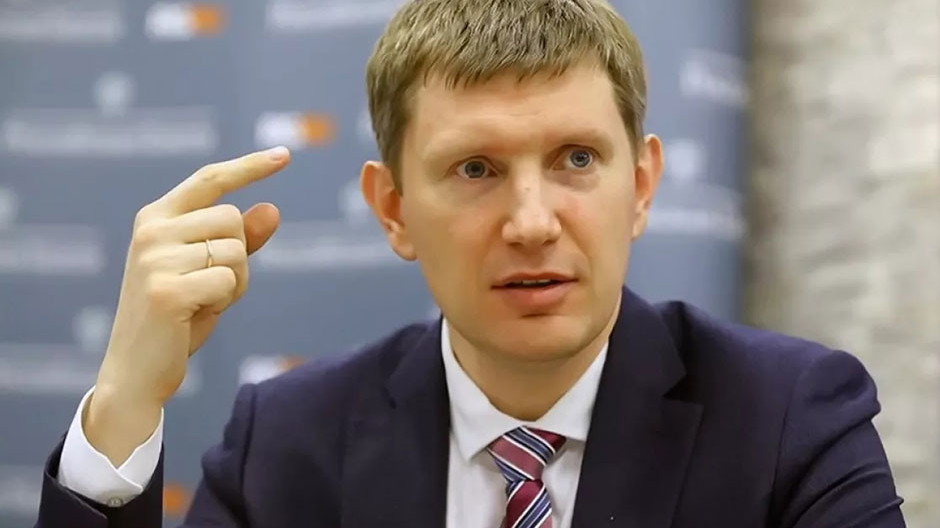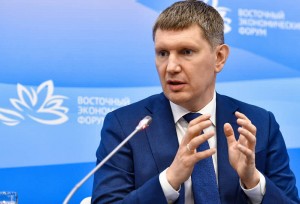Source: www.rucriminal.info
One of the most scandalous processes in the Kama region, which has been going on since July of this year, is entering its final phase. We are talking about an investigation into embezzlement as part of a criminal case involving the theft of 67.7 million rubles from the charitable foundation “Assistance - XXI Century.” The case has signs of corruption, but they carefully avoid talking about this in court.
At the beginning of December, the Leninsky District Court of Perm began the interrogation of one of the key witnesses in the case, Irina Smelevskaya, who was a subordinate of the former Deputy Prime Minister of the Perm Territory government, Elena Lopayeva, during the governorship of Maxim Reshenikov (now the Minister of Economic Development). During interrogation, Smelevskaya explained what and how the money from the charitable foundation was spent. Her testimony generally confirms what the defendants previously told the court.

The defendants in the case are the ex-director of the Assistance - XXI Century Foundation, Elena Naidanova, and her curator from the then Reshetnikov administration, former Deputy Prime Minister of the Perm Territory government, Elena Lopayeva. During the judicial investigation, in July 2023, Naidanova suddenly went abroad; at present, her whereabouts are unknown, she is wanted. The criminal case was opened in 2019 by the FSB Directorate for the Perm Territory, then transferred to the Investigative Committee. At the beginning of the investigation, these actions were classified as fraud on an especially large scale, committed by conspiracy by a group of persons (Part 4 of Article 159 of the Criminal Code of the Russian Federation), later they were reclassified as embezzlement or embezzlement on an especially large scale, committed by conspiracy (Part 4 of Art. 160 of the Criminal Code of the Russian Federation).
According to investigators, from 2017 to 2019. Lopayeva and Naydanova, as part of a group of persons, by prior conspiracy, entered into contracts with affiliated LLCs and individual entrepreneurs, to whom the fund’s money was transferred for fictitious services. Entrepreneurs cashed out the money and handed it over to the accused for a certain percentage. Both of them pointed to Maxim Reshetnikov as the main organizer of the thefts.
The victims of the actions of the accused are being supported by the Assistance - XXI Century Foundation, founded in 2010. Companies transferred money to it that was freed up when the tax rate was reduced. These amounts were transferred to the bank at interest, and the savings were to be used for the development of socio-cultural projects in the Perm region. The total turnover of the fund amounted to 22 billion 781 million rubles.
During the investigation, it turned out that contributions from large taxpayers fulfilling agreements with the regional government were not always spent on the implementation of socio-cultural projects. The information from the “black accounting” seized during the searches was verified. This included an audit of transactions totaling about 90 million rubles, which were allegedly cashed out.
As Naidanova said even before her escape, money from the fund was systematically spent, including on the personal needs of the ex-governor of the region Maxim Reshetnikov, members of his family and his closest assistants: on food in restaurants, the purchase of food, alcohol and cigars, a children's slide for the governor’s children, clothing, personal services for family members, expensive flights and accommodation in luxury hotels, the purchase of a Mercedes for 12 million rubles, which was used by the governor’s family. According to Naidanova, the fund’s money was also spent on small household needs - from buying household items to toothbrushes and socks. To prove this, she told the investigation that checks for the corresponding expenses were marked “MG,” which denoted the name and patronymic of Maxim Gennadyevich Reshetnikov. These same facts of spending are confirmed by a number of witnesses. Naidanova explained that Maxim Reshetnikov gave his orders through his deputy Elena Lopayeva, who gave her instructions on paying bills for the needs of the governor and his family
Here is just one episode from Naidanova’s testimony during interrogation: “After cashing out the funds from the fund, I did not appropriate the money for myself, I gave the cash to Lopaeva, who spent it on the needs of officials of the administration of the Perm region. In 2017, 1.3 million rubles were spent on these needs, in 2018 about 20 million, and in 2019 - 18 million rubles. 1.1 million rubles were spent from the fund on the elections of the governor of the Perm Territory in 2017, and 67 million rubles on the presidential elections in 2018.”
Elena Lopaeva, who was given the floor for the first time only in December, did not agree with the charges; she also denies intent to act as part of an organized group and selfish motives. At the trial, she outlined her role as an executive coordinator, “translator of the governor’s will,” while the governor alone made decisions on the fund’s expenses. Lopayeva said earlier that she often received orders for the purchase of household goods directly from Reshetnikov’s wife.
As Irina Smelevskaya, who was recently interrogated, testified, her task was to reflect the fund’s use of money for projects and keep records of payments for contracts. She knew that work on the projects was not carried out, but the money was cashed out. Naidanova, according to the witness, gave her money to pay off debts on the governor’s expenses, and Smelevskaya herself kept track of these expenses in a table from 2017 to 2019.
She confirmed Naidanova’s testimony about special notes on checks for Reshetnikov’s personal expenses, as well as about payment for the services and personal needs of his political strategist Leonid Davydov from the fund. “The fund’s agreements covered expenses for the elections, the governor’s expenses, his food, Davydov’s expenses, his salary of 4.7 million a month and his flights,” Smelevskaya said, her interrogation continues.
Earlier, in November 2023, the testimony of the former chairman of the government of the Perm Territory, Maxim Reshetnikov, was read out in court. Despite the invitation, he did not appear in court; the materials of his absentee interrogation were read out at the meeting. He is currently the main witness. The main questions that were asked to the ex-governor during the interrogation concerned where the fund's money was spent; he was also asked to comment on the information about the spending of the fund's funds on the personal needs of him and his family.
According to Reshetnikov’s testimony, the fund financed socio-cultural projects in the region, reconstruction of healthcare and educational facilities, environmental protection, youth projects, etc. activity.
In addition, Reshetnikov replied that the fund’s money was spent on “implementing elections at various levels.” By the way, the law directly prohibits the financing of elections from charitable foundations, and the former governor could hardly have been unaware of this.
During the interrogation, Maxim Reshetnikov was asked whether the testimony of Naidanova and Lopaeva that the fund’s money was “spent on the governor” was true, and whether the accused had grounds to “incriminate” him. According to Reshetnikov, he “does not remember the details,” he knows nothing about such expenses of the fund, and he allegedly paid for his personal needs, including a car, restaurants and household needs, from his personal funds, which he transferred to Lopaeva. “I admit that Lopayeva or Naydanova could have paid from the fund for some services and goods related to the maintenance of me or my family. However, they never informed me about this. Perhaps they could have done this on their own initiative, showing excessive official zeal,” Reshetnikov explained.
According to the ex-governor, the testimony of Lopaeva and Naidanova “does not correspond to reality” and thus “they are trying to achieve a mitigation of the punishment for the thefts they committed from the fund.” However, the investigation does not ask or investigate questions about what needs Lopayev and Naydanov used the “stolen” millions for.
As they say, there is no and there is no trial. Apparently, in the literal sense, an investigation is now underway according to this scenario. Previously, a number of sources close to the court indicated that Maxim Reshetnikov could move from the status of a witness to the status of an accused. However, this seems to be a long way off. Of course, one should not expect that the former governor will “remember everything” and repent, but so far the court is actually ignoring the testimony of Lopaeva, Naidanova and other witnesses.
By the way, from numerous comments on media publications about the interrogation of Maxim Reshetnikov, it follows that people do not believe in the veracity of his testimony. Commentators do not mince words: “The thief should be in prison,” “Fraud,” “All of Perm doesn’t believe him,” “Disgrace,” “The master is not to blame! He didn’t know!”, “He deceived the head of state, deceived the residents of the region with his “projects.” And he’s still walking free.”
In addition, local residents express the opinion that Reshetnikov will avoid deserved punishment by blaming Lopaeva and Naydanova. The court seems to be following exactly this course now. Here they are, the convenient accused: Lopayeva gave instructions about the inappropriate spending of the fund’s funds, cashing out money, and Neidanova paid for these inappropriate expenses from the fund’s funds with her own hands. Perhaps the investigation is following the simplest path - blaming the direct perpetrators, and in order to get to the customer and prove his guilt - here you need to work much more seriously, expend energy, show will. And why overexert yourself if it is much easier to report on a case that has almost been investigated and imprison the “switchmen”? In the end, Maxim Reshetnikov now occupies an important post in the federal government, he still needs to be “reached out”, no signals have been received “from above”, and it is still unknown how excessive zeal may end - apparently, this is the reasoning of specific officials who are conducting the investigation and make judicial decisions.
But such lame justice goes against the policy of the federal authorities to eradicate corruption. In recent years, law enforcement agencies have distinguished themselves in this fight - the Investigative Committee of the Russian Federation, the Prosecutor General's Office and the FSB, which have uncovered a number of high-profile corruption cases and multi-billion dollar thefts. However, not all regional law enforcement and local judicial authorities have yet adopted such an anti-corruption policy as a guide to action. This undoubtedly requires closer attention and intervention from federal structures, which have jurisdiction over regional structures.
Yaroslav Mukhtarov
Source: www.rucriminal.info






